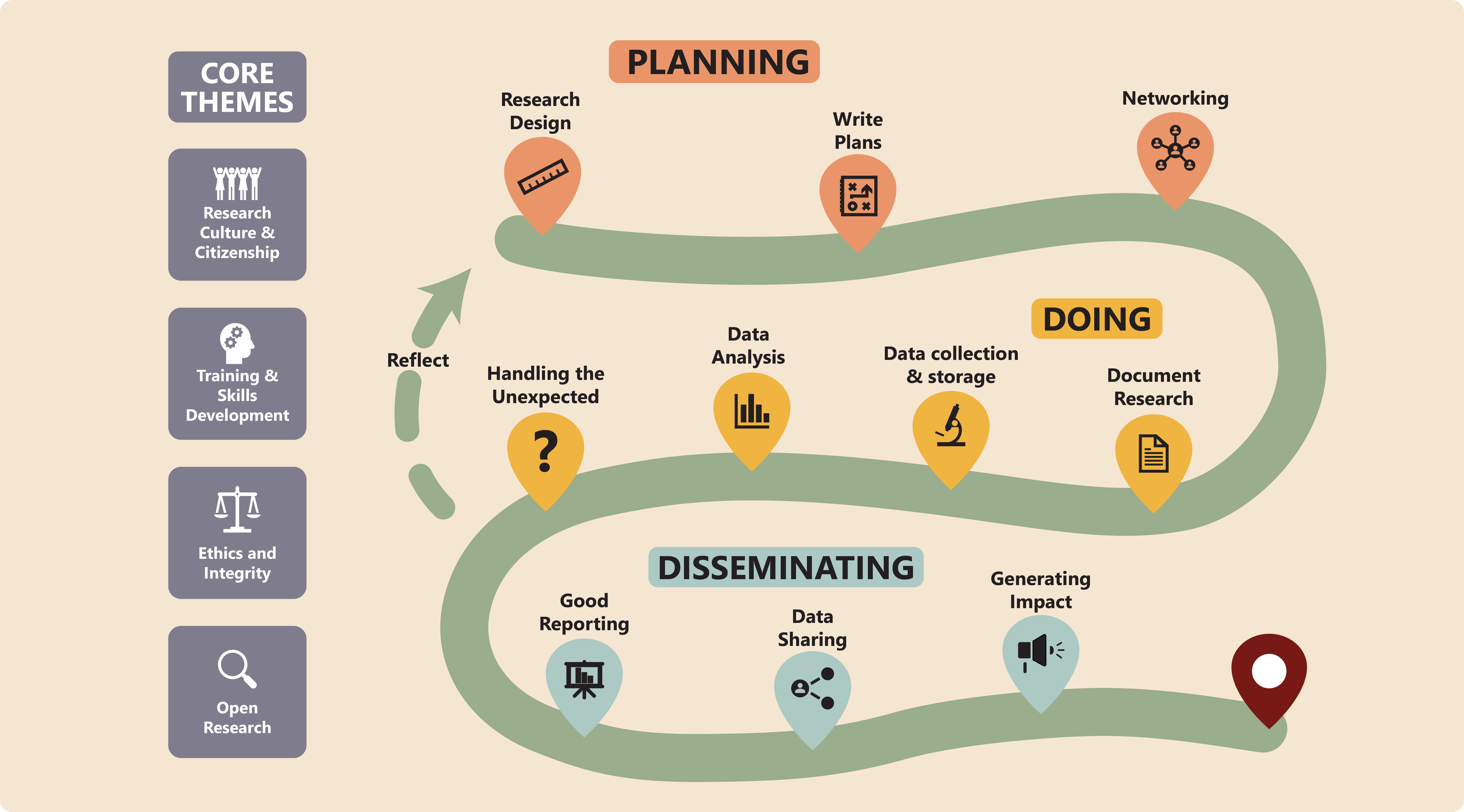Good Reporting

Good reporting ensures clarity, accuracy, and transparency, enabling others to understand, evaluate, and replicate your research effectively. Adhering to reporting standards for your field ensures the credibility and integrity of your work, makes it easier to review, as well as to replicate and to build upon your findings.
Report your research accurately and completely
-
Report any deviations from your protocol, if you published one.
-
Report your methods and results clearly and comprehensively.
-
Avoid poor practice like selective reporting of outcomes or results or cherry-picking of results. You should aim to report all results relevant to your research questions, regardless of their significance and whether they confirm your hypotheses.
-
Report your findings, even if they refute your hypotheses or are “null” results. Not doing so contributes to publication bias, and could lead to research waste, or distort findings of evidence syntheses like meta-analyses, exaggerating results.
-
In quantitative research, be cautious about the reporting and interpretation of statistical results such as P-values.
-
Ensure you properly identify and declare any potential conflicts of interest (e.g. financial, personal) that could affect the integrity of your work and affect research outcomes.
-
Be careful to follow appropriate procedures for referencing and citing previous work (including formats like images and websites) to avoid plagiarism.
-
Consider creating a metadata template you can complete for each experiment.
Follow available reporting guidelines where applicable
-
Use a system such as the Equator Network to identify specific reporting guidelines for your study type and research field.
-
Inform yourself on reporting guidelines in your field of research and in the broader research environment (these are often study type-specific), e.g.
-
For clinical trials, refer to Consolidated Standards of Reporting Trials (CONSORT).
-
For animal research, refer to the ARRIVE guidelines.
-
For studies such as systematic reviews, follow the PRISMA guidelines.
-
-
Additionally, be aware of any additional guidelines or standards set out by your programme, institution, or funding body, and adhere to these as well. Be aware of any specific guidelines e.g. ,around using generative artificial intelligence (AI).
-
Also follow reporting standards for metadata, where applicable.
-
Ensure you adhere to these rigorously and completely. Understand the items fully, fill in all required or recommended sections of any forms or sections, and follow any supporting guidelines available to ensure accuracy.
In what ways could improving your reporting practices benefit your research and its wider impact?
- “What is a reporting guideline?”/”Reporting guidelines for main study types” (Equator Network)
- Simera, I., Moher, D., Hirst, A. et al. Transparent and accurate reporting increases reliability, utility, and impact of your research: reporting guidelines and the EQUATOR Network. BMC Med 8, 24 (2010). https://doi.org/10.1186/1741-7015-8-24
- Equator reporting guidelines search tool
- Nimpf, S., & Keays, D. A. (2020). Why (and how) we should publish negative data. EMBO reports, 21(1), e49775. https://doi.org/10.15252/embr.201949775
- Joober, R., Schmitz, N., Annable, L., & Boksa, P. (2012). Publication bias: what are the challenges and can they be overcome?. Journal of psychiatry & neuroscience : JPN, 37(3), 149–152. https://doi.org/10.1503/jpn.120065